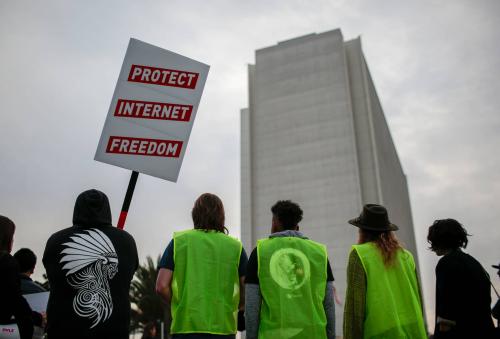Executive Summary
The Federal Communications Commission has requested comments on the regulation of voice telephone services delivered over the Internet, dubbed “VoIP” or Voice over Internet Protocol. This paper examines whether there is a need to regulate VoIP. We conclude that there is no economic rationale for regulating VoIP and that consumers will likely be worse off if VoIP is regulated. Furthermore, the emergence of new technologies, such as VoIP, is rapidly eroding the rationale for continuing to regulate local telephone services.
Hanging up on Regulation?
The first half of 2004 saw a fl urry of activity involving ordinary voice telephone service delivered over the Internet – the technology known as Voice over Internet Protocol, or simply VoIP. Indeed, as of April, one company (Vonage) had signed up more than 100,000 VoIP customers. Vonage’s success has attracted the attention of AT&T, Verizon, Qwest and the cable companies, which are all racing to offer VoIP across the country.
The wild card in this birth of a new industry is the response of the telecommunications regulators, who have been promoting local phone competition under a mandate from Congress for the past eight years while simultaneously distorting free-market outcomes by subsidizing various telecom constituencies. Because the subsidies are funded through taxes on traditional telephone service, Internet telephony threatens to reduce the revenues for such subsidies and may therefore represent more competition than regulators will tolerate.



Commentary
Internet Telephones: Hanging up on Regulation?
December 1, 2004